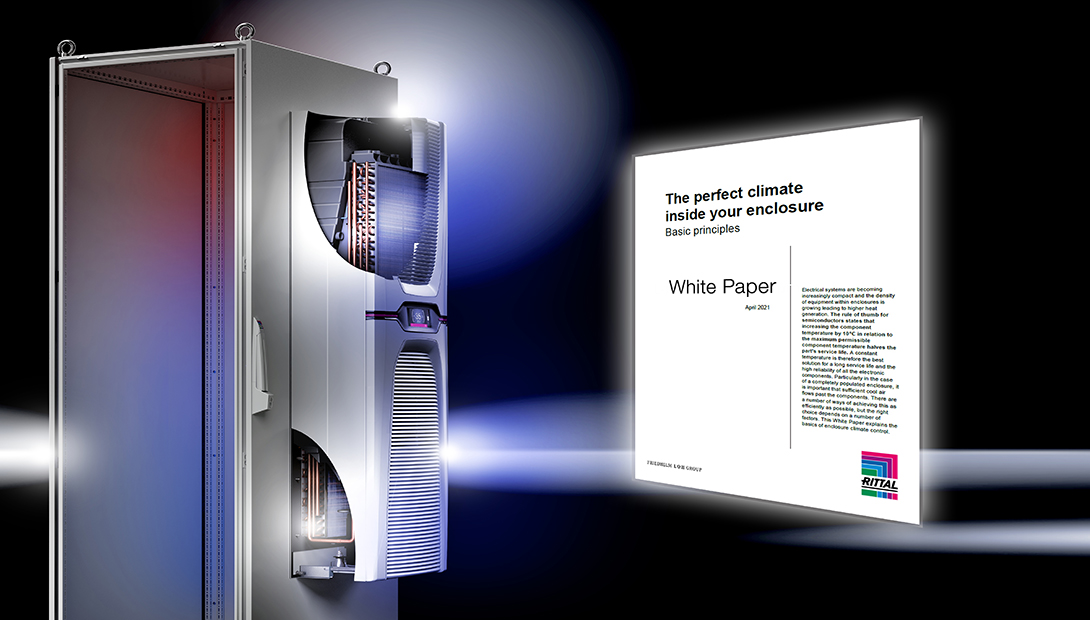
WHITE PAPER: The Perfect Climate Control Inside your Enclosure
Electrical installations are becoming more compact and the number of circuits per unit volume is increasing.
The result is a higher heat development per unit volume. A constant temperature is the best condition for a long life and high reliability, of all your electronic components. Especially with a completely fully assembled housing, it is important that sufficient cool air flows past the components.
There are various options to realize this as efficiently and responsibly as possible, but insight is necessary to make the right choice. Here at Rittal we have created, a highly useful white paper that explains the basics of control cabinet climate control.
This white paper includes content that covers the follow topics:
- Heat transfer
- Basic cabinet area calculation
- Setup method
- Dimensioning
There are a number of ways of achieving effective, control cabinet climate control, as efficiently as possible, but the right choice depends on a number of factors. Rittal's white paper explains the basics of enclosure climate control.
A safe and secure environment, for sensitive electronic devices is of great importance in every industry and every process. Still maintaining an acceptable temperature within an enclosure is often overlooked. Allowing an electronic device to overheat can cause failures, which can in turn lead to large scale issues within the process including expensive line stoppages.
In every industry however sensitive the devices in these enclosures are, they have an ever-increasing power density. This is very welcome of course, but it also has a drawback. More heat is generated over a smaller area, so increasing the risk of malfunctions due to overheating.
In this latest white paper, we explain the foundation of a perfect climate for the sensitive electronic devices in the enclosure. To read all about industrial climate control in this white paper, complete with further information and insight of formulas, calculations, illustrations, examples and numerous conclusions. follow the link at the bottom of this page.
In the meantime, if you have any specific questions, send an e-mail to cooling@rittal.co.uk and one of our colleagues will get in touch to help.
To keep up to date on all the latest cooling topics over the next few months register your interest below:




